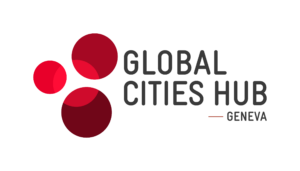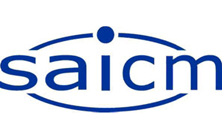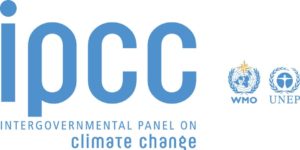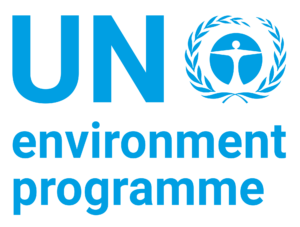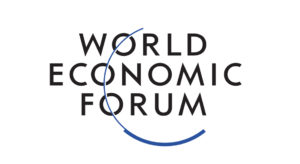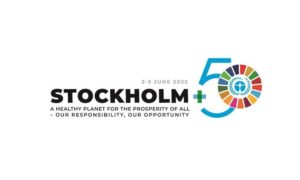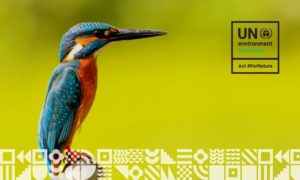Newsletter 17 Jan 2022
Environment: What’s Up in GENeva | 17 – 23 January 2022

The Geneva Environment Network’s weekly newsletter includes the latest information on the global environmental agenda, main events, job vacancies, as well as other useful resources and updates. Stay tuned and follow us also on Twitter, Facebook, LinkedIn, Youtube, or visit our website regularly for additional updates.
Due to the developments in the sanitary situation, various institutions in Geneva continue operating virtually. Our update on COVID-19 and the environment lists relevant information, research, data, and press releases on the environmental origins and impacts of the pandemic.
Image of the week | View of Geneva from the Salève. © UNEP, Pablo Arturo López Guijosa.
Finance to Beat Plastic Pollution
As we get closer to the second segment of the 5th session of the United Nations Environment Assembly (UNEA5-2), debates around the challenges and opportunities for establishing a new global instrument to tackle plastic pollution are increasingly pressing. One challenge to be addressed is the great variation between countries with regards to their financial and technical capacity to address the impacts of plastic pollution. Therefore, any new global instrument requires carefully designed mechanisms that can effectively address these challenges. In particular, technical and financial resources will be needed to support decision-making and assist developing countries and economies in transition to implement the global responses that will be negotiated to address the plastic crisis.
This week’s session of the Geneva Beat Plastic Pollution Dialogues will dive into this important topic with an online session on the Basis for Financial Cooperation and Technical Assistance in a New Plastic Agreement. During this session, leading experts will discuss the challenges identified and provide recommendations on setting up robust financial cooperation and technical assistance mechanisms within a new UN agreement on plastic pollution. Register on Webex and join us online on Tuesday 18 January at 14.00 CET.
Resilience in the Global Biodiversity Framework
This year, the parties to the Convention on Biological Diversity (CBD) are expected to adopt a new Global Biodiversity Framework (GBF) at the second segment of the 15th Conference of Parties (COP15) in Kunming. In order to achieve the overarching goals of protecting and enhancing biodiversity, the post-2020 GBF will require provisions to ensure the resilience of biodiversity and ecosystems in the face of climate change and increasing disaster risk. Thus, integrating resilience in the GBF for greater alignment with the Sendai Framework for Disaster Risk Reduction 2015-2030, the Paris Agreement, and the new Glasgow Pact is critical.
In preparation for the face-to-face negotiations of the post-2020 GBF, scheduled to take place in Geneva in March 2022, join us this week to learn more about How to Ensure a Resilient Global Biodiversity Framework to Disaster and Climate Risks. Experts at this session will discuss the increasing disaster and climate risks and their impact on biodiversity and ecosystems, share country level experiences on how biodiversity and ecosystem-based approaches have been successfully applied to reduce disaster risks and support climate change adaptation, and propose recommendations for incorporating disaster and climate resilience in the new GBF. Register on Webex on join us on Thursday 20 January at 16:00 CET.
Environment in the Davos Agenda
World leaders are convening virtually this week for the Davos Agenda 2022 to address the state of the world, as the current sanitary conditions have made in-person meetings difficult.
Ahead of this annual gathering, the World Economic Forum issued last week the Global Risks Report 2022, delivering a strong message to overcome divisions and come together to face the short-, medium- and long-term global risks. This year’s edition emphasizes once again the prevalence of environmental issues in the global riskscape. Indeed, environmental risks dominate the report for both the short and long term, and climate-change related risks also account for three of the top risks by severity in the next 10 years. Read more here.
Environmental issues will be at the center of several debates of the Davos Agenda:
- Navigating the Energy Transition | 19 January | 13.00 – 13.45 CET
- Accelerating and Scaling Up Climate Innovation | 19 January | 17:45 – 18:30 CET
- ESG Metrics for a Sustainable Future | 20 January | 13:30 – 14:15 CET
- Accelerating a Nature-Positive Economy for People and Planet | 20 January | 16:30 – 17:15 CET
The event will also mark the launch of several Forum initiatives, including efforts to accelerate the race to net-zero emissions, and ensure the economic opportunity of nature-positive solutions.
Join Stockholm+50 Preparations
A crucial international environmental meeting will be held in Stockholm, Sweden, on 2 and 3 June 2022. Anchored in the Decade of Action, under the theme “Stockholm+50: a healthy planet for the prosperity of all – our responsibility, our opportunity” this high-level meeting will follow months of consultations and discussions with individuals, communities, organizations and governments around the world. A one-day preparatory meeting will also be held at United Nations Headquarters in New York, on 28 March 2022.
As we keep reminding, Stockholm+50 will commemorate the 1972 United Nations Conference on the Environment and celebrate 50 years of global environmental action. By recognizing the importance of multilateralism in tackling the Earth’s triple planetary crisis – climate, nature, and pollution – the event aims to act as a springboard to accelerate the implementation of the UN Decade of Action to deliver the Sustainable Development Goals, including the 2030 Agenda, Paris Agreement on climate change, the post-2020 global Biodiversity Framework, and encourage the adoption of green post-COVID-19 recovery plans.
Stockholm+50 and its preparatory meeting are envisioned as open and inclusive forums that will feature a diverse set of voices to help build a healthy planet for the prosperity of all. All organizations looking to participate in person (including hosting and/or attending side events) must be accredited. Organizations looking to apply for special accreditation for Stockholm+50 and its preparatory meeting must do so by 4 February 2022. Visit the official Stockholm+50 website for detailed information on who needs accreditation and how to apply.
What (Else) Should I Read or Watch Next?
- UN System Response to Marine Litter and Plastic Pollution | Outcomes of the Geneva Beat Plastic Pollution Dialogue | 13 January 2022
Outcome of the dialogue launching the UN-EMG report Addressing marine litter and microplastics: UN system-wide contributions.
- 8th Replenishment of the GEF Trust Fund – Ambitions for the Chemicals and Waste Cluster | 14 January 2022
A lot of scientific evidence tells us that the pollution crisis is even more dangerous than the climate and biodiversity ones, GEF CEO said at this event. The cost of inaction on chemicals and waste is very high, but managing them soundly offers great economic benefits, said H.E. Amb. Franz Perrez. It is important to increase the allocation for the chemicals and waste cluster in the GEF-8 replenishment. - A year-long Nature-based Solutions Journey | Outcomes of the Geneva Nature-based Solutions Dialogues | January 2022
Throughout 2021, the Geneva NbS Dialogues highlighted the linkages between NbS and global processes of environmental governance, in the run-up to major events in the international agenda. This synthesis document presents the main outcomes of the series, revealing the opportunities and challenges of developing and scaling up NbS in order to meet our needs without further jeopardizing the health of our planet. - What if nature had rights? | Geneva Solutions | 14 January 2022
At the 10th Annual International Conference on Rights of Nature for Peace and Sustainable Development, held as part of the Geneva Forum in December, environmental experts discussed on opportunities and challenges for a UN recognition of nature’s rights.
Events
See all
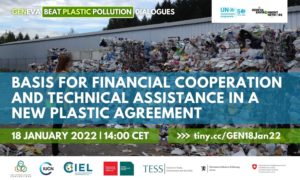
Virtual
Basis for Financial Cooperation and Technical Assistance in a New Plastic Agreement | Geneva Beat Plastic Pollution Dialogues
18 Jan 2022 14:00 – 15:30
Online | Webex
GEN
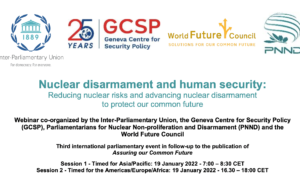

Conference
Gestion des risques naturels dans un climat qui change | La Terre en 2050 : Les indispensables transitions. Cycle de conférences De Saussure
19 Jan 2022 20:00 – 22:00
Aula du Collège de Saussure 9, Vieux-Chemin-d’Onex, Petit-Lancy
UNIGE
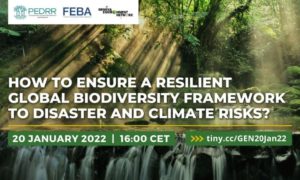
Virtual
How to Ensure a Resilient Global Biodiversity Framework to Disaster and Climate Risks?
20 Jan 2022 16:00 – 17:15
Online | Webex
PEDRR, FEBA, GEN

Afterwork
Climate Fresk Training | Formation à l’animation
21 Jan 2022 12:30 – 15:30
Espace 3DD, 3 rue David-Dufour
Association la Fresque du climat
Jobs
See all